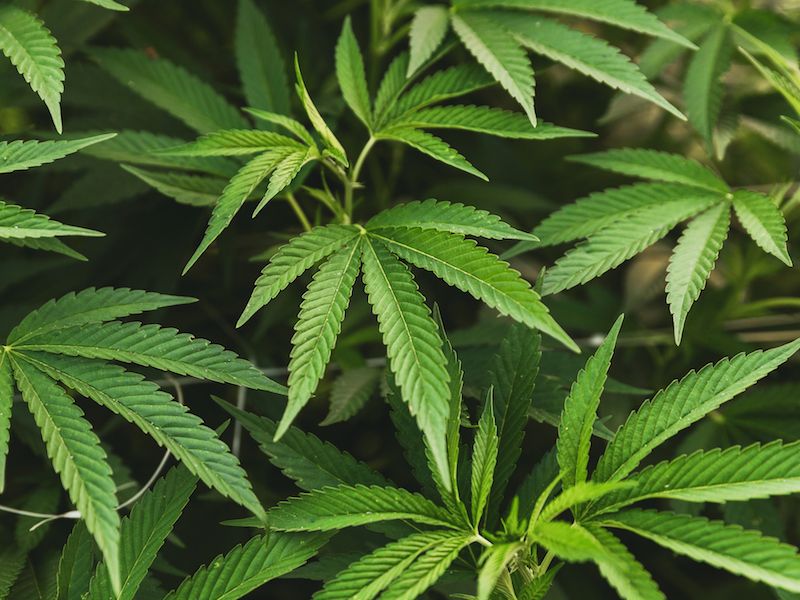
Public opinion surrounding cannabinoids and marijuana have changed incredibly in the last several decades. THC, cannabinoids, and even marijuana are legal for medical usage in the majority of states. Not as many states have legalized pot for recreational applications, but even that would have been impossible even just a decade ago.
A group of compounds derived from the cannabis plant (the marijuana plant, basically) are called cannabinoids. New things are being uncovered about cannabinoids every day in spite of their recent decriminalization in some states. We usually think of these particular substances as having universal healing qualities, but existing research suggests there might also be negative effects including a strong link between cannabinoid usage and the development of tinnitus symptoms.
There Are Several Types of Cannabinoids
Nowadays, cannabinoids can be used in various forms. It isn’t just weed (or ganja, or refer…..ok, there are lots of nicknames for marijuana so let’s move forward). Pills, oils, vapors and other variations of cannabinoids are currently available.
The varieties of cannabinoids obtainable will vary depending on the state, and under federal law, many types are still illegal if the amount of THC is over 0.3%. So it’s still normal for people to be very cautious about cannabinoids.
The problem is that we don’t yet know much concerning some of the long term side effects or complications of cannabinoid usage. A good example is the new insight about how cannabinoids influence your hearing.
New Studies Into Cannabinoids And Hearing
A wide range of illnesses and medical conditions are believed to be helped by cannabinoids, whatever you like to call it. Based upon evidence that is anecdotally available, conditions like vertigo, nausea, seizures, and many more seem to be improved by cannabinoids. So researchers resolved to see if cannabinoids could help with tinnitus, as well.
Seems as if cannabinoids might actually cause tinnitus. According to the research, more than 20% of study participants who employed cannabinoid products reported hearing a ringing in their ears. And that’s in people who had never experienced tinnitus before. What’s more, marijuana users were 20-times more likely to report having tinnitus symptoms after 24 hours.
And for those who already suffered from tinnitus, marijuana use made it worse. In other words, there’s some very strong evidence that cannabinoids and tinnitus don’t really mix all that well.
How Cannabinoids worsen tinnitus
There are a couple of tangible ways in which cannabinoids can make your tinnitus experience worse. First, the incidents of tinnitus symptoms can get more consistent, you may experience the ringing or buzzing in your ears more persistently. Cannabinoids can also make those tinnitus episodes more intense. Louder ringing that can be much harder to ignore can be the result.
Cannabinoids have also been shown to cause the onset of tinnitus symptoms. To put it a different way: after you start using cannabinoids you could start to experience tinnitus symptoms even if you had no symptoms before.
The Causes of Tinnitus Are Unclear
Just because this link has been discovered doesn’t necessarily mean the root causes are all that well known. It’s apparent that cannabinoids can have an effect on the middle ear and symptoms of tinnitus. But what’s causing that impact is much less evident.
But we can say for certain that marijuana is one of the few commonly used mood-altering substances that causes tinnitus (alcohol, for example, hasn’t been shown to have a direct connection with tinnitus).
Research, undoubtedly, will continue. People will be enabled to make a smart choice as to which of the many forms of cannabinoid to choose as we gain better insight into their connection to tinnitus.
Beware The Miracle Cure
Lately there has been a lot of hype about cannabinoids by marketers. That’s partly because perceptions are changing about cannabinoids (and, it could also reveal that people are attempting to move away from opioid use). But this new research makes clear that cannabinoids can and do create some negative effects, especially if you’re concerned about your hearing.
The marketing for cannabinoids has been particularly aggressive and you can’t totally escape all of the enthusiasts.
But this new research certainly indicates a strong link between tinnitus and cannabinoids. So regardless of how many adds you see for CBD oils, if you’re worried about tinnitus, you should probably avoid them. The link between tinnitus and cannabinoids symptoms has been pretty securely demonstrated by the research, so it’s worth being careful.